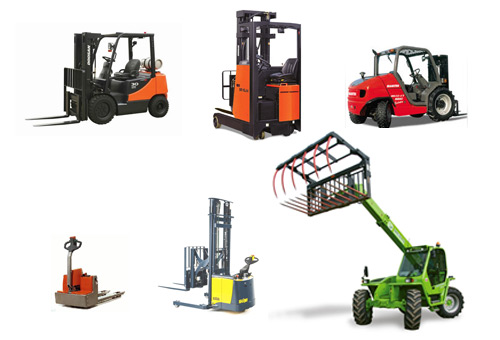When looking to buy a forklift truck, the type you may choose, can significantly affect your warehouse productivity. If you use wrong forklift-type vehicle in terms of weight capacity, you are risking of damaging the vehicle. For example, let’s say you have bought a forklift that can lift certain amount of weight, but plan to use it to lift material that is much heavier, chances of over-tipping to either side are greater. Downtime or lower productivity due to equipment damage equals devastating results.

Lift trucks are an innovative way to reduce labor costs and improve efficiency. And in order to match various applications, many different sizes and models are available on the market. But with all the different models available, the biggest question is: What is the difference between the different types of forklift trucks and how can they improve my business productivity? Rad on to learn more about different types of forklift trucks used in various industries today.
Counterbalance Forklift Truck: This type is the most common type of forklift truck in the industry due to its capability to transport heavier loads. Counterbalance forklift trucks are durable and suitable for a variety of indoor and outdoor operations such as loading and unloading of goods, line feeding, stacking, order picking and horizontal transport. They are electric, gas and diesel powered.
Hand Pallet Truck: This truck is recognized for its exceptional versatility and durability. It is suitable for a wide range of material handling applications such as horizontal transport, order picking, loading and unloading, stacking, etc. Hand pallet truck is a non-powered tool and is easy to maneuver. It offers efficient movement of goods.
Side-Loaders Truck: These trucks operate by picking up loads from the side (from the perspective of the operator). Side-loaders are perfect for handling long loads such as timber, piping, sheets etc., which is impossible to performed with counterbalance lift truck. However, they are not suitable for more conventional loads due to their limited flexibility.
As you can see each type of forklift truck is designed for a specific application which can be an advantage and/or disadvantage for your business. When choosing the right type, consider the type of loads you will be handling, the size of your warehouse, etc., to ensure you choose the vehicle that will suit all your business needs. Chose a vehicle that will not only boost your productivity, but also increase safety and reliability.



